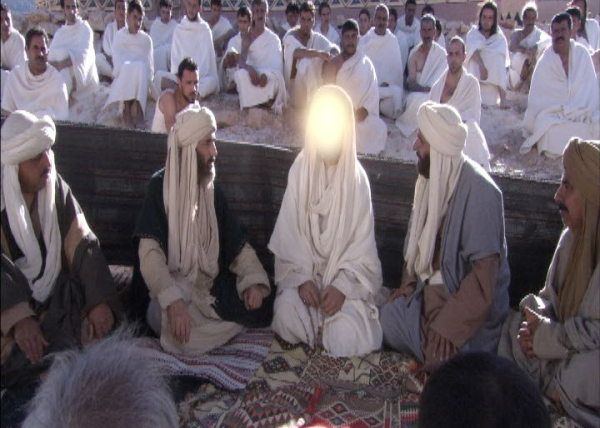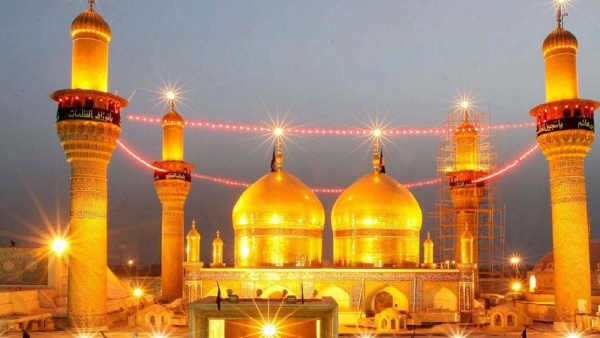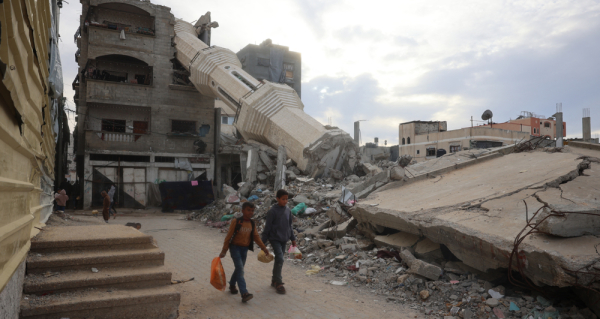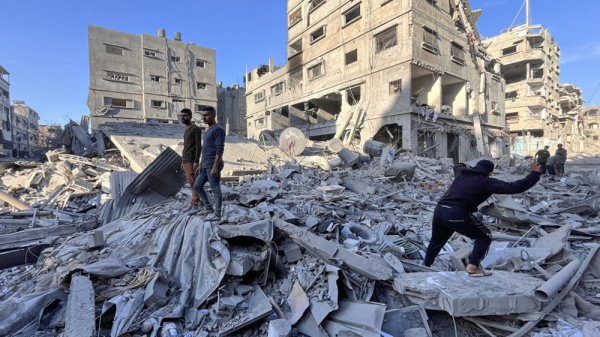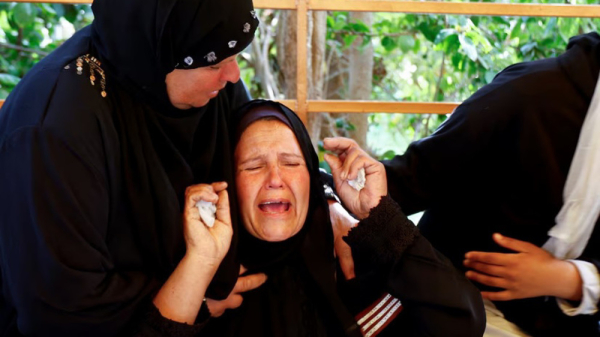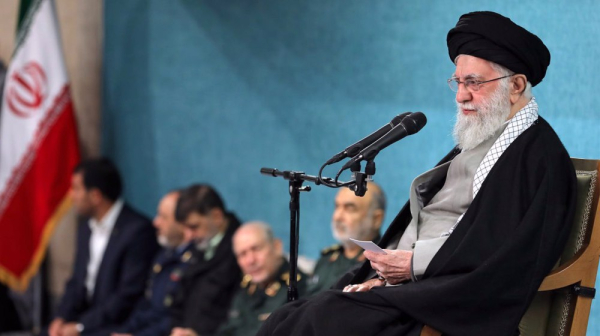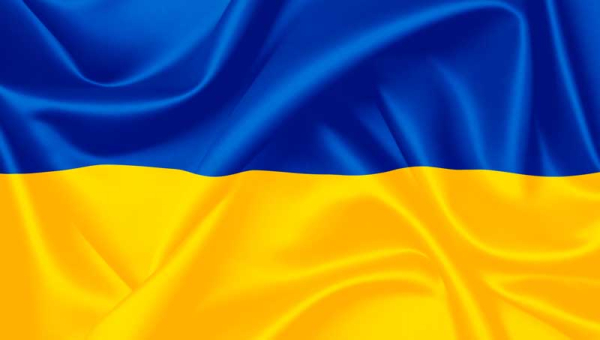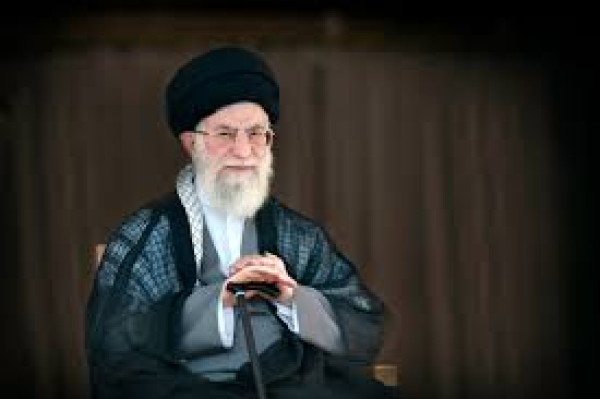zarezadeh
Division in Shia during the period of Imam Musa al-Kazim (a.s.)
During the period of Imam Musa ibn Ja'far (a.s.), the Ismailiyyah, Fatahiyyah, and Nawwasiyyah sects were formed. Although during the lifetime of Imam Sadiq (a.s.), the ground for division in Shia had been prepared, no division occurred among them. However, with the martyrdom of Imam Sadiq (a.s.) and the beginning of the Imamate of Musa ibn Ja'far, the Shia split into different sects; a group of them denied the death of Ismail, the son of Imam Sadiq (a.s.), and considered him the Imam. A number of this group, who were disappointed with the life of Ismail, considered his son Muhammad to be the Imam. This group became known as the Ismailiyyah. Others considered Abdullah al-Aftah as the Imam and became known as the Fatahiyyah, but after his death, which occurred about 70 days after the martyrdom of Imam Sadiq (a.s.), they believed in the Imamate of Musa ibn Ja'far. Some also stopped following a person named Nawus in the Imamate of Imam Sadiq (AS), and some believed in the Imamate of Muhammad Dibaj.
Ghaliyan activity
During the period of Imam Kazim (AS), Ghaliyan were also active. During this period, the Bashiriyya sect was formed, which was attributed to Muhammad ibn Bashir, one of the companions of Musa ibn Jafar. During the life of the Imam, he told lies about the Imam.
Muhammad ibn Bashir said that the person people know as Musa ibn Jafar is not Musa ibn Jafari, who is the Imam and the proof of God, and he claimed that the real Musa ibn Jafar is with him and can show them the Imam. He was skilled in magic and had made a face like the face of Imam Kazim (AS) and showed it to people as Imam Kazim (AS), and some were deceived by him. Before the martyrdom of Imam Kazim (AS), Muhammad ibn Bashir and his followers had spread rumors in the community that Imam Kazim (AS) had not been imprisoned, was alive, and would not die. Imam Kazim considered Muhammad ibn Bashir impure and cursed him, and considered it permissible to shed his blood.
Imam Sadiq (AS)'s Will and the Wandering of Some Shiites
It is stated in the sources that Imam Sadiq (AS) introduced five people, including the Abbasid Caliph, as his successors in view of the strictness of the Abbasids and to protect the life of Imam Kazim (AS). [Pishvai, Sirah Pishvaiyan, 1372, p. 414]
Although Imam Sadiq (AS) had repeatedly introduced the Imam after him to his special companions, this action somewhat confused the situation for the Shiites. During this period, some of the prominent companions of Imam Sadiq (AS) such as Momin Taq and Hisham bin Salim were also in doubt. They first went to Abdullah Aftah, who had claimed to be the Imam, and asked him about zakat. But Abdullah's answers did not convince them. The two then met with Musa ibn Ja'far (a.s.) and were satisfied with his answers and accepted his imamate. [Kashshi, Rijal, 1409 AH, pp. 282-283]
Imam Musa al-Kazim(pbuh)
Imam Musa al-Kazim(pbuh)
Born: November 6, 745 AD, Al-Abwa', Saudi Arabia
Died: 799 AD (age 54 years), Baghdad, Iraq
Children: Ali al-Rida, Fatimah bint Musa, Hakima bint Musa, Ahmad ibn Musa · See more
Parents: Ja'far al-Sadiq, Hamīdah al-Barbariyyah
Full name: Mūsá ibn Ja‘far al-Kāzim
Place of burial: Imam al-Kazim & Imam al-Jawad Shrine, Baghdad, Iraq
Siblings: Isma'il ibn Ja'far
Musa ibn Ja'far al-Kazim (Arabic: مُوسَىٰ ٱبْن جَعْفَر ٱلْكَاظِم, romanized: Mūsā ibn Jaʿfar al-Kāẓim; 745–799) was a descendant of the Islamic prophet Muhammad and the seventh imam in Twelver Shia Islam. Musa is often known by the title al-Kazim (lit. 'forbearing'), apparently a reference to his patience and gentle disposition. He was born in 745 CE in Medina to Ja'far al-Sadiq, the sixth Shia imam, who died in 765 without publicly designating a successor to save his heir from the wrath of the Abbasid caliphs. The subsequent crisis of succession was eventually resolved in favor of al-Kazim, with a dissenting group, now known as the Isma'ilis, separating from the mainstream Shia.
US, Israel reject Gaza reconstruction plan proposed by Arab leaders that allows Palestinians to stay
The United States and Israel have rejected a long-awaited Arab plan for the reconstruction of the Gaza Strip that would allow the territory’s roughly two million residents to stay in their homeland.
Arab leaders adopted Tuesday a unified plan for the future of the Gaza Strip at an emergency summit in the Egyptian capital, Cairo.
The proposal counters President Donald Trump’s controversial plan for the United States to take over Gaza and permanently resettle its population.
Both the White House and the Tel Aviv regime claimed that the Arab plan failed to address realities in Gaza.
They said they stood by Trump’s plan to expel the territory’s Palestinian residents and transform it into a “Riviera” owned by the United States.
“The current proposal does not address the reality that Gaza is currently uninhabitable and residents cannot humanely live in a territory covered in debris and unexploded ordnance,” National Security Council spokesman Brian Hughes said in a statement on Tuesday.
“President Trump stands by his vision to rebuild Gaza free from Hamas. We look forward to further talks to bring peace and prosperity to the region.”
Israel’s foreign ministry also said in a statement that with “Trump’s idea, there is an opportunity for the Gazans to have free choice based on their free will. This should be encouraged!”
“Instead, Arab states have rejected this opportunity, without giving it a fair chance, and continue to level baseless accusations against Israel.”
Arab League Assistant Secretary General Hossam Zaki said the Israeli foreign ministry’s response to the Arab plan was “against humanity and against morals.”
He said Trump’s proposal “is against international law and, we have said this time and again, this is not a way to treat this man-made crisis.”
“This is a war that has been waged by Israel partly with the aim of driving Palestinians out of their territory.”
Trump proposed in February that Washington would take over control of the Gaza Strip — possibly with the help of US troops — to create a “Riviera” of West Asia.
He said the displaced Palestinians would have no right of return since, he claimed, they would have “much better housing” in Egypt, Jordan and other countries.
Press TV’s website
Israel’s siege on Gaza part of its ‘war of extermination’: Hamas
The Palestinian resistance movement Hamas says Israel’s intensification of the siege of Gaza and preventing the entry of aid are parts of the regime’s genocidal war on the blockaded territory.
Hamas spokesman Abdel Latif al-Qanou said on Friday Israel’s policy of starving Palestinians in Gaza is a blatant violation of International law and amounts to a war crime.
The siege is a “flagrant violation of international and humanitarian laws and a war crime that the world must stop and hold its perpetrators accountable”, he said.
The Hamas official added the world must stop Israel from continuing the starvation policy and that the perpetrators must be put on trial.
Al-Qanou called on the International community and human rights institutions to force Israel to open Gaza crossings and allow humanitarian aid, including food and medical supplies, to enter Gaza.
“We renew our call to the international community, all human rights and humanitarian institutions, and all free people of the world to force the Zionist occupation to open the crossings, bring in relief and medical aid, and end the suffering of our people.”
Israel accepted Hamas’ longstanding negotiation terms under the Gaza truce, which began on January 19.
The first phase ended at the weekend after six weeks of relative calm, during which Israeli captives were exchanged for Palestinian prisoners.
Israel wants to extend this phase until mid-April, but Hamas insists on transitioning to the second phase, seen as leading to a lasting ceasefire.
Israel has ramped up its rhetoric and halted the flow of aid into Gaza, prompting several nations and international organizations to warn against using aid as a "political tool."
Israel has blocked humanitarian aid entering Gaza, leading to fears of food shortages in the besieged Palestinian strip.
Rights groups have warned about the devastating consequences of the blockade of Gaza with the UN World Food Program (WFP) saying that its food stockpile will only last two weeks.
Meanwhile, Israeli media outlets recently reported that the regime plans to resume the Gaza war in the next 10 days.
The Israeli military’s new chief of staff, Lt. Gen. Eyal Zamir, has also acknowledged that the regime has failed to defeat the Palestinian resistance movement Hamas as he hinted at the possibility of resuming the war on Gaza.
The UNRWA recently warned that Israel’s ongoing violent aggression against the West Bank appears to be part of the regime’s plan to annex the occupied territory.
Since the onset of the Gaza war in October 2023, attacks by the Israeli army and illegal settlers have killed at least 930 Palestinians and injured nearly 7,000 in the occupied West Bank.
Last July, the International Court of Justice (ICJ) declared that Israel’s long-standing occupation of Palestinian territories is illegal, demanding the evacuation of all illegal settlements in the West Bank and East al-Quds.
Press TV’s website
Women’s Day: Hamas blasts Israeli killing of 12,000 women in Gaza as ‘stain on humanity’
As the world marks International Women’s Day, Palestinian resistance movement Hamas condemns Israel’s killing of more than 12,000 Palestinian women in Gaza as a “stain on humanity.”
“The killing of 12,000 women in Gaza, the injury and arrest of thousands, and the displacement of hundreds of thousands are a stain on humanity,” Hamas said in a statement on Saturday.
It said female Palestinian abductees are “subjected to psychological and physical torture in flagrant violation of all international norms and conventions.”
Hamas added that the suffering endured by these women exposed the “double standards” of Western countries, including the United States, in dealing with Palestinian abductees.
The statement came shortly after the head of the Government Media Office in the Gaza Strip, Salama Maarouf, said 12,316 women had been killed due to the Israeli regime’s genocidal war in the besieged territory.
“Women’s Day coincides with the continuation of the Israeli siege and the prevention of aid, as women live in catastrophic humanitarian conditions and suffer from starvation and thirst,” Maarouf said.
According to the Gaza government tally, the bloody Israeli onslaught also left 2,000 women and girls with permanent disabilities due to amputations.
Moreover, 13,901 women were widowed and at least 17,000 mothers lost their offspring, while over 50,000 pregnant women lost their unborn babies.
Backed by the United States and its Western allies, Israel launched the war on Gaza in early October 2023, after Hamas and other Gaza-based Palestinian resistance movements carried out Operation Al-Aqsa Flood against the Israeli regime in response to its decades-long oppression of Palestinians.
Israel’s genocidal war on Gaza has led to the death of at least 48,446 Palestinians, mostly women and children, and left 111,852 others injured.
A ceasefire and prisoner exchange agreement went into effect in Gaza on January 19, halting Israel’s aggressive campaign against the coastal region.
Press TV’s website
Iran will definitely reject insistence on talks by bullying powers: Ayatollah Khamenei
Leader of the Islamic Revolution Ayatollah Seyyed Ali Khamenei says the insistence of some bullying powers on holding talks with Iran does not aim to solve issues.
Ayatollah Khamenei made the remarks in a meeting with heads of the three branches of government and a number of Iranian officials in Tehran on Saturday.
"The insistence of some bully governments on negotiations is not aimed at resolving issues, but rather [aims] to assert and impose their own expectations,” the Leader said.
“Absolutely, the Islamic Republic will not accept their expectations,” Ayatollah Khamenei added.
These bullying governments do not seek to negotiate solely on the nuclear issue; instead, they use negotiations as a “path to create new expectations” in areas such as Iran’s defense capabilities and international capabilities, which Iran would definitely oppose, Ayatollah Khamenei emphasized.
They are raising the issue of negotiations to exert pressure on public opinion, so Iran refuses to hold talks with them despite their expression of readiness, he added.
The Leader criticized Europeans for leveling shameless allegations against Iran, saying their claim that Iran has not fulfilled its nuclear commitments is “irrational.”
"You say that Iran has not fulfilled its nuclear commitments. Well, did you fulfill yours? You did not comply with [your obligations] from the very beginning," Ayatollah Khamenei told Europeans.
After the US withdrawal from the 2015 nuclear deal, Europeans vowed to compensate but failed to fulfill their promise, the Leader pointed out.
Ayatollah Khamenei emphasized that the principles of Western civilization are contrary to the principles of Islam and “we cannot follow them.”
“We can and should use any benefit [available] anywhere in the world but we cannot rely on the principles of Western civilization,” the Leader said.
The Leader said that the actions of Western nations, including colonization, the plundering of nations' resources, widespread massacres, false claims about human rights and women's rights, and double standards on various issues, have brought disgrace to Western civilization.
“[The claim of] free dissemination of information in the West is nothing more than a lie,” Ayatollah Khamenei emphasized.
Elsewhere in his remarks, the Leader pointed to Iran’s economic woes and stressed the importance of making reforms in the country’s monetary policies and revaluing the national currency.
Ayatollah Khamenei urged all Iranian officials to foster coherence to solve problems, saying the three branches of government and the Armed Forces should strengthen cooperation.
Press TV’s website
Ukraine
Ukraine is a country in Eastern Europe. It is the second-largest country in Europe after Russia, which borders it to the east and northeast. Ukraine also borders Belarus to the north; Poland and Slovakia to the west; Hungary, Romania and Moldova to the southwest; and the Black Sea and the Sea of Azov to the south and southeast. Kyiv is the nation's capital and largest city, followed by Kharkiv, Dnipro, and Odesa. Ukraine's official language is Ukrainian.
Humans have inhabited Ukraine since 32,000 BC. During the Middle Ages, it was the site of early Slavic expansion and later became a key centre of East Slavic culture under the state of Kievan Rus', which emerged in the 9th century. Kievan Rus' became the largest and most powerful realm in Europe in the 10th and 11th centuries, but gradually disintegrated into rival regional powers before being destroyed by the Mongols in the 13th century. For the next 600 years the area was contested, divided, and ruled by a variety of external powers including the Grand Duchy of Lithuania, the Kingdom of Poland, the Polish–Lithuanian Commonwealth, the Austrian Empire, the Ottoman Empire, and the Tsardom of Russia.
The Cossack Hetmanate emerged in central Ukraine in the 17th century but was partitioned between Russia and Poland before being absorbed by the Russian Empire in the late 19th century. Ukrainian nationalism developed and, following the Russian Revolution in 1917, the short-lived Ukrainian People's Republic was formed. The Bolsheviks consolidated control over much of the former empire and established the Ukrainian Soviet Socialist Republic, which became a constituent republic of the Soviet Union in 1922. In the early 1930s, millions of Ukrainians died in the Holodomor, a human-made famine. During World War II, Ukraine was occupied by Germany and endured major battles and atrocities, resulting in 7 million civilians killed, including most Ukrainian Jews.
Ukraine gained independence in 1991 as the Soviet Union dissolved and declared itself neutral. A new constitution was adopted in 1996 as the country transitioned to a free market liberal democracy amid endemic corruption and a legacy of state control. The Orange Revolution of 2004–2005 ushered electoral and constitutional reforms. Resurgent political crises prompted a series of mass demonstrations in 2014 known as the Euromaidan, leading to a revolution, at the end of which Russia unilaterally occupied and annexed Ukraine's Crimean Peninsula, and pro-Russian unrest culminated in a war in Donbas with Russian-backed separatists and Russia. Russia launched a full-scale invasion of Ukraine in 2022.
Causes of the War in Ukraine
After the dissolution of the Soviet Union in 1991, Ukraine and Russia maintained close relations. In 1994, Ukraine agreed to give up its nuclear arsenal and signed the Budapest Memorandum on Security Guarantees, on the condition that Russia, the United Kingdom, and the United States guarantee that they will defend Ukraine against the threat or use of force against its territorial integrity or political independence. Five years later, Russia, as a signatory to the Charter for Security in Europe, reaffirmed "the inherent right of each participating state to freely choose its own security relations, including agreements and commitments."
Despite being recognized as an independent state since 1991, Ukraine, as a constituent republic of the former Soviet Union, was considered by the Russian leadership to be part of its sphere of influence. In 2008, Russian President Vladimir Putin spoke out against Ukraine's possible accession to the North Atlantic Treaty Organization (NATO). In 2009, Romanian analyst Iulian Cifu and his colleagues argued that Russia was pursuing an updated version of the Brezhnev Doctrine in relation to Ukraine, which held that Ukraine's sovereignty could be no greater than that of the Warsaw Pact countries before the collapse of the Soviet sphere of influence in the late 1980s and early 1990s. This view was based on the assumption that Russia's moves to appease the West in the early 1990s should have been met with a Western response, without NATO's expansion along Russia's border.
After weeks of protests during the Euromaidan movement (Ukrainian Orange Revolution) (2013–2014), pro-Russian President Viktor Yanukovych and Ukrainian parliamentary opposition leaders signed an agreement on 21 February 2014 calling for early elections. The next day, Yanukovych fled Kiev before an impeachment vote that would have stripped him of his powers as president. Leaders in Ukraine's Russian-speaking eastern regions continued to declare their loyalty to Yanukovych, which led to pro-Russian unrest in Ukraine in 2014. This unrest was followed by Russia's annexation of Crimea in March 2014 and the War in Donbass, which began in April 2014 with the creation of the Donetsk and Luhansk People's Republics by Russia.
On September 14, 2020, Ukrainian President Volodymyr Zelensky approved the new National Security Strategy of Ukraine, "which provides for the expansion of a distinctive partnership with NATO with the aim of joining NATO." On March 24, 2021, Zelensky signed Decree No. 117/2021, which approved the "Strategy of the Demobilization and Reintegration of the Temporarily Occupied Territories of the Autonomous Republic of Crimea and the City of Sevastopol." In July 2021, Putin published an article titled "The Historical Unity of Russians and Ukrainians," in which he reiterated his view that Russians and Ukrainians are "one nation." American historian Timothy Snyder described Putin's views as "imperialism." British journalist Edward Lucas described them as "historical revisionism." Other observers have noted that the Russian president has a distorted view of modern Ukraine and its history.
Russia has said that Ukraine's possible accession to NATO, and NATO expansion in general, threatens its national security.
The necessity of continuous self-improvement
Another very important point is the continuation of self-improvement. Sometimes we observe that very good, faithful, revolutionary, and even critical young people regarding some shortcomings in society, after a few mornings when they find themselves in a position and assume a position, they neglect self-improvement and “Alaikum anfaskumu” and fall into the valley of deviation and small and large corruptions.
The warning that is contained in the statements of the wise leader of the Islamic Revolution, especially addressed to the youth, is to be careful. Those who have fallen into major corruptions and blunders were not like this from the beginning, but were also honest and upright people at first, but gradually in the first step they did a small thing for their own benefit and became neglectful of themselves and did not take care of their behavior and presence in various circles and the promises they make to others and the connections they have established to see whether this presence and connection is divinely approved or not. This self-reliance and self-care must continue, and we must pay attention to the fact that everyone is in a more dangerous and wider position in terms of possibilities, “Alaykum anfaskumu” has a deeper message for him and he must pay more attention to this principle.
Another note and reminder is that we must ultimately answer before God. The same verse continues: “To God is the return of all of you.” Humans have a limited life span and it will end, but we, who are not mortal beings, remain and will reach higher stages of existence. Paying attention to this belief is very constructive for us. There are many verses and narrations in this regard, and there is also rational reasoning in this regard that if the universe wants to be limited to this world, it is against the wisdom and justice of God. In addition, the intuitive evidence that every human being has experiences in this field is also worth mentioning.
Quranic Rule for Immunity from Deviation
In the Tafsir al-Mizan of the late Allamah Tabatabaei, more than 30 pages of scientific, interpretative and narrational discussion have been made about this verse. The focus of Allamah Tabatabaei’s discussion under this verse is the discussion of the soul and self of man and that truth that shapes the identity of man and provides the basis for the growth, perfection and transcendence of man. Naturally, every human being seeks to grow and achieve transcendence. We, who are involved in the natural environment of life, often follow the factors and obstacles to growth in our surroundings. For example, my family and my job and my income and my society should be such that they cause my growth.
This noble verse calls upon us to pay attention to ourselves and that all external contexts are only contexts and the main factor is man himself and as is stated in the emphases of the wise leader of the Islamic Revolution, our most important duty is to pay attention to ourselves and correctly identify the duty and be committed to it. If we pay attention to ourselves, fulfill our duties, and guard against the influence of external factors on our souls and insides, and we are able to manage the distorting and deviating factors that enter our souls, no factor can lead us astray. The Leader of the Revolution reminds us:
“The message of the martyrs to me, you, and all those who respect these innocent bloods shed unjustly is this. Do not look at someone who has gone astray and has gone to gather spoils. “I will not harm you if I go astray while I have been guided.” What do you have to do with someone else going astray? You protect and preserve yourself. This is the commandment of Islam and the message of the blood of the martyr.”
This very meaning and attention to this formula that God Almighty has put forward is very important. That is, if there were not such a strong and clear verse that has a clear text and meaning, we could not give a definitive ruling that every human being and believer should pay attention to himself, others and external factors cannot prevent him from the path of guidance. Of course, external factors may create obstacles and cause some apparent harm, but they cannot cause serious harm to our path of guidance in a way that would divert us from the path.
